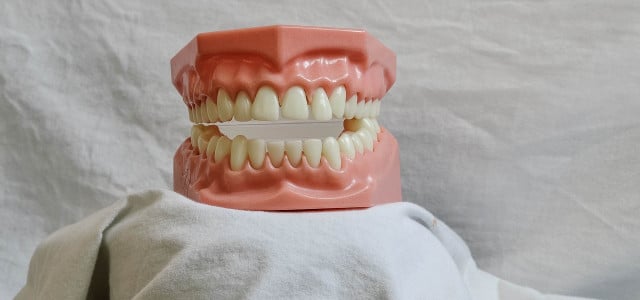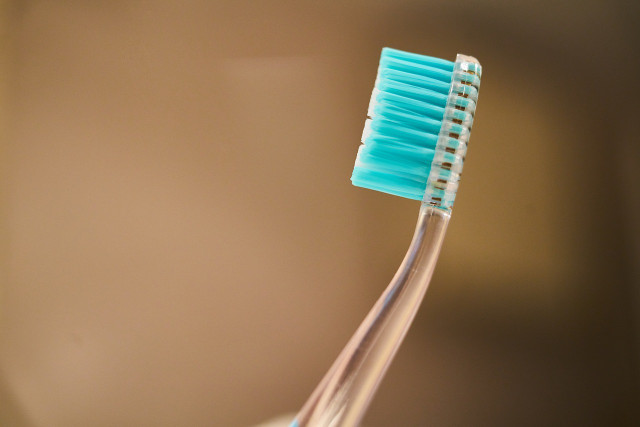
Brushing your teeth – better before or after eating? Brushing is essential to effective oral hygiene. Is it also relevant whether we unpack the toothbrush immediately after getting up or only after breakfast? The question is not that easy to answer.
What is closer to you in the morning: reaching for the toothbrush or the coffee spoon? The question “brush your teeth before or after eating?” cannot be answered unequivocally.
Even dentists do not agree on this question. We examine the advantages and disadvantages of both methods.
By the way: According to science, the opinion that you shouldn’t brush your teeth immediately after eating and wait at least thirty minutes to do so is outdated. You can read more about the topic here: Brushing your teeth after eating: the 30-minute rule is outdated.
Why brush your teeth before eating?
Brushing your teeth before or after eating can have different effects in the mouth. If I brush my teeth after eating, will I swallow bacteria that have formed on my teeth at night during breakfast? Can this affect my health?
First of all: If you swallow bacteria, then that is harmless, if not exactly appetizing. The acid in our stomach is extremely effective and kills most bacteria.
According to experts, brushing your teeth before eating still has some advantages:
- We produce less saliva at night, which means that bacteria that are harmful to our teeth multiply quickly. You can remove them by brushing your teeth in the morning. The plaque should get out of the mouth and into the sink as quickly as possible, which relieves the tooth and reduces the number of bacteria before the teeth are again burdened with new substances.
- Not all bacteria are bad, some are even important for our health and immune system. A study published in the Journal of Clinical showed that some of the good bacteria grow back in abundance after a mouth cleanse, and that the oral flora is generally more diverse.
- A healthy oral flora effectively protects teeth from the next acid attack (e.g. coffee or orange juice at breakfast).
What speaks for brushing them after eating?

(Photo: CC0 / Pixabay / termakasih0)
Both brushing your teeth before or after eating is advocated by professionals. According to some experts, however, the bacteria in our mouth are only active when we give them food that they can convert into acids and sugars. These acids attack tooth enamel and can cause tooth decay. If the topping is removed after breakfast, the bacteria are also deprived of their effectiveness. The recommendation of the German Society for Dental Conservation (DGZ) is: “The teeth should be cleaned after meals so that, in addition to an existing biofilm, food residues that could be available as a substrate for cariogenic germs are also removed.”
However, this argument is countered by the opinion that the bacteria cannot cause any harm if they are cleaned off before breakfast. Because the conversion to acids and lactose begins seconds after the first bite. The DGZ also admits that there is no beneficial evidence from clinical studies for brushing your teeth after eating. It is more important to maintain and optimize regular oral hygiene.
Tips for proper oral hygiene

(Photo: CC0 / Pixabay / Engin_Akyurt)
Brushing your teeth before or after eating is a basic requirement for healthy teeth. Optimizing your oral hygiene can help you have stronger gums and fresher breath. Brushing your teeth properly is not always enough to keep them healthy. Here are a few tips for a healthy oral flora:
- Dentists recommend dental floss as a supplement to brushing your teeth. However, there are hardly any studies that deal with the effectiveness of dental floss. Some people’s teeth are close together and it is difficult for a toothbrush to reach the spaces between the teeth. Dental floss could be useful as an aid in this case.
-
Ideally, floss daily. Incidentally, the experts disagree on the question of “flossing before or after brushing” as they do on the question of brushing your teeth.
- Also use mouthwash for good oral hygiene. Make your own mouthwash so you know exactly what’s in it.
- Commercial antiseptic mouthwashes contain the active ingredient chlorhexidine, which kills the beneficial bacteria. A 2020 study showed that the salivary microbiome of healthy people who rinsed their mouth with chlorhexidine solutions changed significantly. Acid levels increased, their bodies had less nitrite available, and they tended to have higher blood pressure.
- The DGZ recommends toothpaste containing fluoride to prevent tooth decay.
- Even children at an early age should be consciously introduced to proper oral hygiene.
-
People with acid reflux risk damaging their teeth. If you produce too much stomach acid, it can flow back through the esophagus into the mouth and attack the tooth enamel.
Here you can learn more about home remedies that can help with too much stomach acid: Too much stomach acid: which home remedies can help
So whether you brush your teeth before or after eating is less relevant than the regularity and consistency with which you care for your oral cavity. In addition to toothpaste, it’s a good idea to floss your teeth, and if you miss brushing after a long night, you can use a mild mouthwash to help limit the damage. If you want to brush your teeth after eating, you don’t have to wait 30 minutes to do so, even if you’ve eaten acidic foods.
Tip: Also pay attention to sustainable dental care and avoid products with plastic or other harmful substances if possible.
Read more on Techzle.com:
- Yellow teeth: you can do that, but you shouldn’t do that
- Remove tartar yourself: methods and possible risks
- Can you build up tooth enamel? Tips for healthy teeth